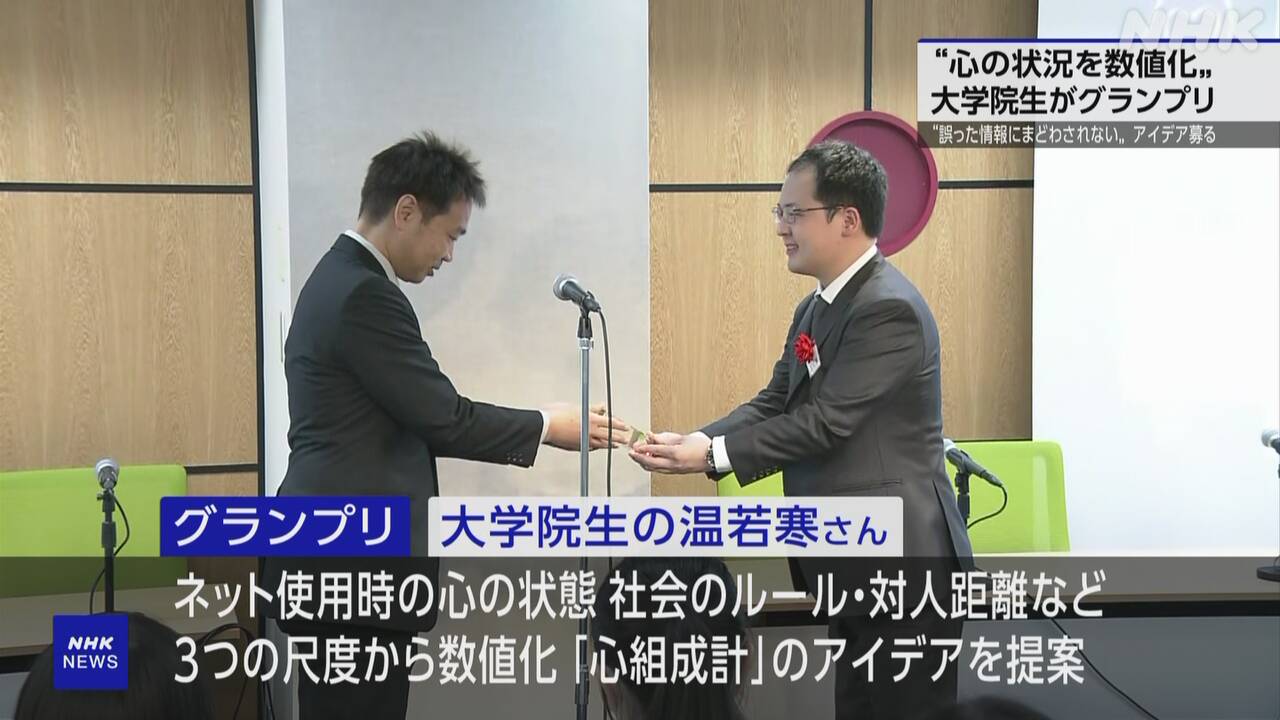As the spread of false information and fake news becomes a problem, a contest was held in Tokyo asking for ideas on how to avoid being misled by false information, and aims to quantify the state of mind when using the Internet. The idea created by a graduate student was selected as the grand prize winner.
This event was held for the first time by the NHK Foundation to collect ideas for realizing the concept of "informational health," which aims to avoid being misled by false information by incorporating a variety of information without bias. The ceremony was held.
Of the 65 entries, the grand prize winner was an idea called a "mental composition meter" that can quantify the state of mind when using the Internet based on three scales, including social rules and interpersonal distance. Graduate student Wen Ruochan, who proposed the idea, was selected.
Mr. On said, ``I was inspired by body composition monitors that check the state of your body from data other than weight, and I thought that by knowing your mental state from various aspects, you can check whether you have a firm grasp of your own psychological state. I thought about it, and I'm very happy to have won the award.''
In addition, the semi-grand prize winner was presented with the idea of analyzing the ideas of articles viewed and visualizing the information bias in a graph, and the structure of fake news through a workshop in which high school students were asked to come up with titles for articles that would increase the number of accesses. Ideas that allow children to learn were selected.
The idea that received the award will continue to be considered for practical application.

